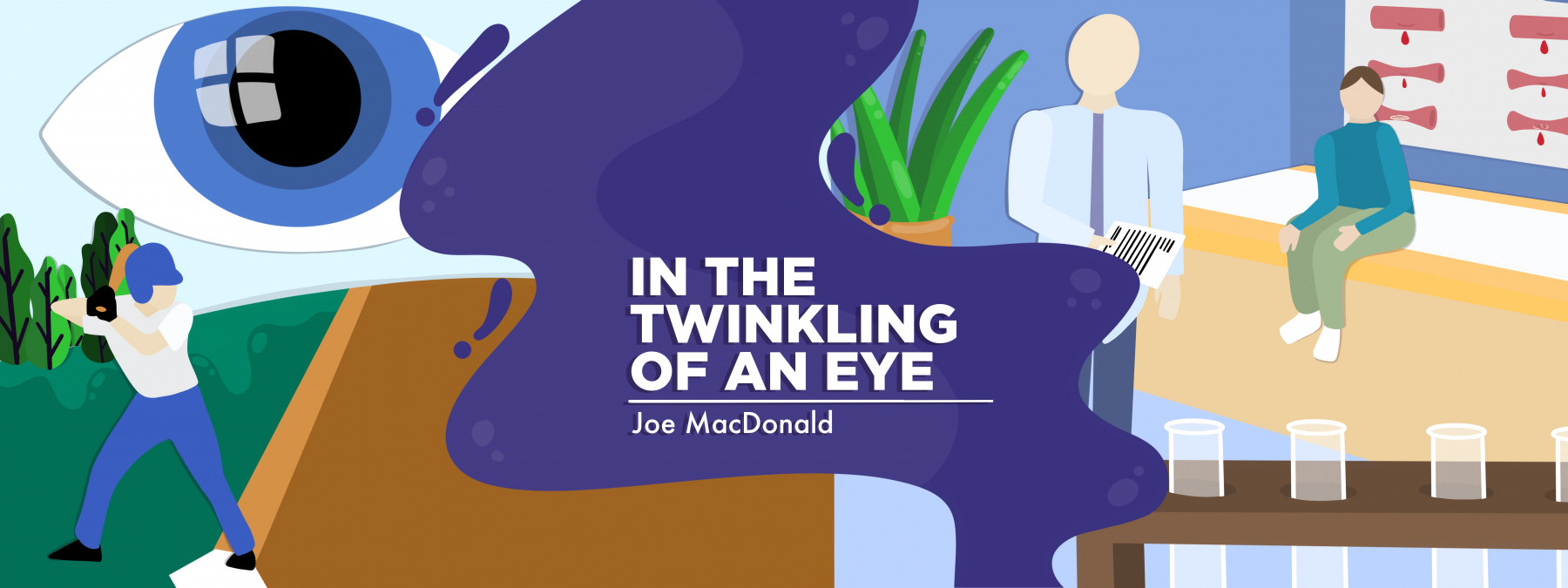A Dream Reveals a Truth About Medical Treatment

Last night, I dreamed that I attended a doctor appointment for my wife, Cazandra. It was a follow-up to discuss lab results requested at the initial meeting. The doctor entered the room and shared treatment strategies. She told Cazandra that she wanted to try a new medication to help relieve some painful symptoms.
I asked the doctor if she’d reviewed how the new medicine might affect Cazandra’s current regimen. The doctor looked at me as if I’d blasphemed against the holy integrity of the Hippocratic oath. I didn’t intend to challenge her; I simply wanted to know if she was following appropriate procedures. I didn’t want to run the risk of Cazandra reacting negatively to a new prescription.
In the dream, I could tell that the doctor did not take kindly to my line of questioning. To reduce the tension in the room, I explained to her that Cazandra and I had two sons with hemophilia. Through our struggles with the disorder, we learned to question everything. I meant no offense to her thoughts regarding treatment. I told the good doctor that we learned from day one to be critical of those administering treatment to our boys.
My explanation appeared to lighten the mood in the room. We laughed with one another, and the conversation turned more positive as the doctor explained to Cazandra that she’d reviewed all the other medications my wife takes daily. The doctor reassured my wife and me that she should manage the medical combination well. She asked if we had more questions and then left the room. I looked at Cazandra, and we laughed, thus ending the dream.
I woke up wondering what in the world I’d just experienced. I kept hearing the sentence, “We learned to question everything.” This statement is true regarding how to treat hemophilia.
I think back to the first meeting Cazandra and I had with her gynecologist about six weeks after our oldest son, Julian, came into the world. Dr. Jacobs gave us a copy of three paragraphs from The New England Journal of Medicine. He said that this short entry was the only thing in the journal about hemophilia. He told us that we would soon learn more about the bleeding disorder than most doctors learn in their careers.
My initial response was to dismiss the idea that we might know more than doctors about a medical issue. Unfortunately, we quickly learned that Jacobs was right. When visiting an emergency room or addressing a resident in a hospital, we helped teach the workers what we knew about our son’s condition. We helped provide medical professionals the necessary information to care for Julian, and later, our youngest son, Caeleb.
My wife and I passed the idea of questioning on to our two sons. We encourage them to ask medical personnel to explain treatment when there is any confusion. We remind them that they have control of their bodies and deserve to know the course of action when doctors suggest a plan. We remind Julian and Caeleb that they understand how their bleeding disorder manifests itself better than anyone else. We encourage them to ask when in doubt.
I believe that dreams can help us process difficult situations in ways that our conscious mind cannot. In my case, I think my dream helped reinforce my family’s choices regarding hemophilia management. I particularly appreciated how the relationship between doctor and caregiver developed as we found common ground regarding treatment. We can work together when we lay our cards out on the table and allow ourselves to appreciate the different roles that we play in our loved one’s life.
Yes, we learned to question, but we also learned to respect each other’s points of view. When we reach a place of compassion and understanding, we can move forward with prioritizing the care of our loved ones.
I wish you sweet dreams of wisdom and compassion. May we find ways of providing the best care for those we hold dear.
Note: Hemophilia News Today is strictly a news and information website about the disease. It does not provide medical advice, diagnosis, or treatment. This content is not intended to be a substitute for professional medical advice, diagnosis, or treatment. Always seek the advice of your physician or another qualified health provider with any questions you may have regarding a medical condition. Never disregard professional medical advice or delay in seeking it because of something you have read on this website. The opinions expressed in this column are not those of Hemophilia News Today or its parent company, Bionews, and are intended to spark discussion about issues pertaining to hemophilia.







Leave a comment
Fill in the required fields to post. Your email address will not be published.